Igor Sikorski's Helicopter firsts (Part 2)
- 1939 VS-300 First single main rotor helicopter successfully produced in the World and literally set one World's Record after another with each flight .
- 1940 Igor Sikorsky is awarded Connecticut Helicopter License No. 1 1941 VS-300 breaks the World helicopter endurance record, 1 hour, 32 minutes and 26.1 seconds
- 1941 VS-300 fitted with rubber floats was the World's First practical amphibian helicopter

1942 XR-4 World's First production helicopter is delivered and this is the first cross-country flight of a helicopter in the United States
1943 R-4 First mass produced helicopter

- 1943 R-4 First helicopter to land on a ship - Bunker Hill
- 1944 R-4 First Combat Rescue using a helicopter piloted by Lieutenant Carter Harman
- 1945 R-5 First helicopter equipped with armament
- 1945 S-51 First Civilian Rescue using a helicopter piloted by Dimity "Jimmy" Viner

S-51
- 1945 R-4 is the only helicopter to serve in World War II
- 1947 S-51 piloted by Jimmy Viner performed the First Naval Rescue
- 1948 S-51 First amphibious assault with a helicopter

S-52
- 1949 S-52 established a World Helicopter Speed Record of 129.5 mph
- 1949 S-52 First helicopter to perform a loop
- 1949 S-52 World's first production helicopter with metal rotor blades
- 1950 S-51 First helicopter to be equipped with a three-axis automatic flight-control system
- 1950 S-51 holds all the World recognized international helicopter records
- 1953 S-52 First turbine-powered helicopter
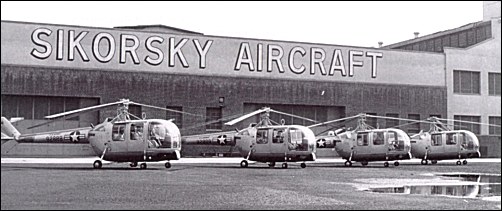
USMC S-52s
- 1951 S-55 First helicopter to retrieve an aircraft
- 1952 S-55 First anti-submarine warfare helicopter
- 1952 S-55 First helicopter to fly across the Atlantic Ocean establishing a World Record
- 1952 S-55 First helicopter equipped with pre-tracked interchangeable rotor blades
- 1953 S-55 is the only transport-type helicopter certified by the Civil Aeronautics Administration for commercial operations

S 56 (CH-37C)

- 1953 S-56 established World Speed and Altitude Records
- 1953 S-56 First helicopter with automatic blade and tail folding
- 1953 S-56 First helicopter with power-operated loading
- 1955 S-56 First production twin-engine helicopter

S 56 Civilian

US Army S 56
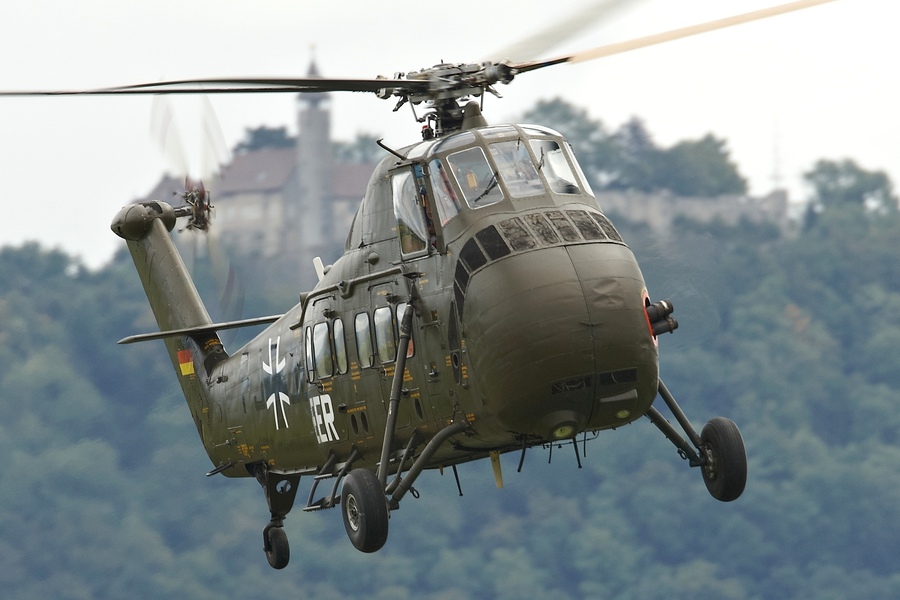
German S 58
- 1956 S-58 First helicopter to use an automatic flight control system
- 1956 S-58 First helicopter with automatic hover positioning system

- 1957 S-58 was used by President Eisenhower to become the First American President to use a helicopter built specifically for his needs


The Ampbibious S-62
- 1958 S-62 First helicopter with a amphibious hull
- 1958 S-61 First helicopter with energy-absorbing landing gear
- 1958 S-61 First helicopter CAA certified for automatic stabilization
- 1958 S-61 First helicopter with dipping sonar
- 1959 S-58 The First helicopter to be used for power-line construction
- 1959 S-60 First helicopter with aft-facing control station
- 1959 S-61 World's largest amphibious helicopter
- 1959 S-61 First helicopter that could both search out and destroy enemy submarines
- 1960 S-62 made Los Angeles Airways the First carrier in the World to use a turbine engine helicopter
- 1960 S-58 was the First helicopter to fire a radio-controlled missile
- 1960 S-61L First helicopter designed specifically for airline use
- 1960 S-55 First aerial recovery by helicopter of parachute
- 1961 S-58 First helicopter to retrieve an U.S. astronaut, Commander Alan Shephard, America's First man in space

S 61
- 1961 S-61L was the World's First Multi-turbine helicopter certified for passenger transport
- 1961 S-61 made the fastest helicopter crossing of the USy (average speed of 150 mph)
- 1962 S-61 established a World helicopter speed record of 210.65 mph, This was the First time a helicopter traveled faster than 200 mph on a established course
- 1962 S-61 established five helicopter World Speed Records
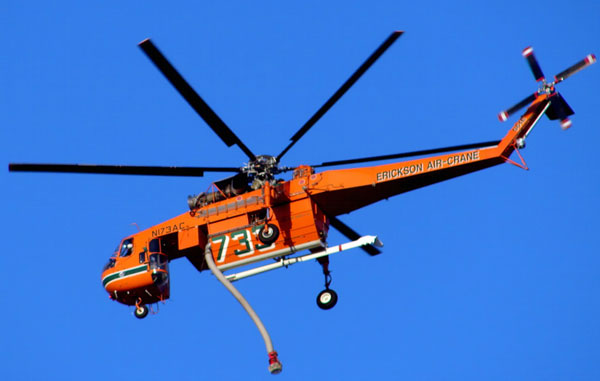
- 1962 S-64 First production flying crane helicopter
- 1962 S-64 First production helicopter with aft-facing control station
- 1962 S-64 First helicopter with a fly-by-wire control system
- 1964 S-65 First six-blade main rotor
- 1964 S-65 First helicopter with a suction fuel system
- 1964 S-65 First helicopter with a collective bias-droop compensation control

S64 (HH-53)
- 1965 RH-53D First production mine-countermeasures helicopter
_15_conducts_a_mine_sweeping_exercise.jpg)
- 1965 S-61F First experimental compound helicopter with a full complement of aircraft control surfaces
- 1965 S-61 First aerial refueling of a helicopter from a standard tanker airplane
- 1965 S-61 Rotor-Prop First helicopter to demonstrate conversion of tail rotor to propeller
- 1965 S-61 made the First nonstop, transcontinental, flight setting a World's record for distance of 2,105 miles
- 1965 S-61N made the First transatlantic crossing by a commercial helicopter

- 1965 S-64 claimed three World's Altitude Records
- 1966 S-64 First helicopter with engine inlet particle separator
- 1968 S-65 First large helicopter to loop and roll
- 1968 S-65 First titanium-spar rotor blade
- 1969 S-65 First helicopter with an infrared suppressor system
- 1970 S-65 First helicopter transpacific crossing
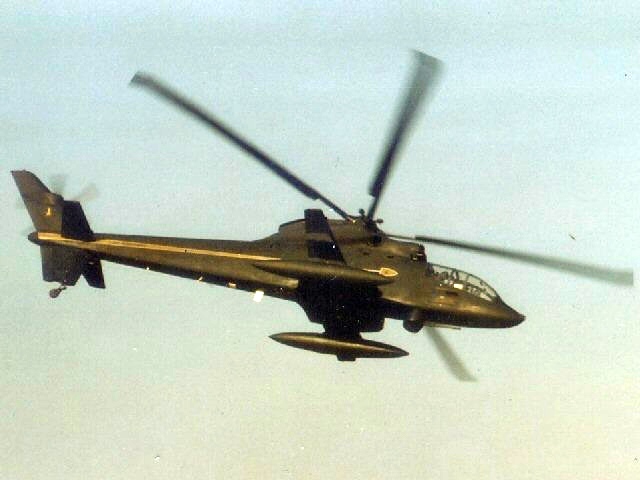
S-67 Blackhawk

- 1970 S-67 First prototype gunship with wings and dive brakes
- 1970 S-67 set a World Speed Record
- 1970 S-67 First helicopter with swept-tip rotor blades
- 1971 S-70 First helicopter with a canted tail rotor
- 1973 S-69 First to fly the Advancing Blade Concept (ABC)
- 1973 S-70 First successful flight of an all composite, bearingless tail rotor
.jpg/1024px-US_Navy_050623-N-2468S-007_An_Australian_Army_S70A-9_Black_Hawk_helicopter_lands_on_the_flight_deck_aboard_USS_Blue_Ridge_(LCC_19).jpg)
S-70 Blackhawk

Australian S70 Blackhawk
- 1973 CH-53E First three-engine helicopter
- 1973 CH-53E First seven-blade main rotor helicopter
.jpg)
SH-53 Super Stallion


S-76
- 1977 S-76 First helicopter designed for civil transportation
- 1980 S-70 first helicopter qualified to fly into know moderate icing conditions
- 1984 S-75 First all-composite airframe (ACAP)
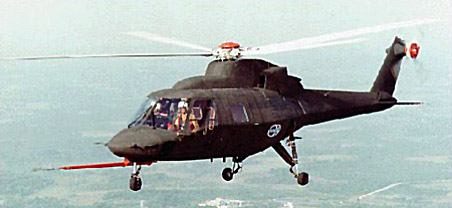
S-75 ACAP
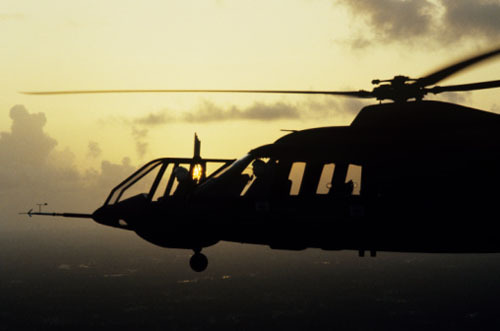
- 1985 First helicopter with single-pilot research cockpit, fly-by-wire, sidearm controls, voice interaction (SHADOW)
- The Sikorsky Helicopter Advanced Demonstrator and Operator Workload (SHADOW), 1985
- A heavily modified S-76, with a highly advanced single-pilot cockpit grafted to the nose used to investigate the feasibility of producing a one-man helicopter that could do more than a two-man aircraft:

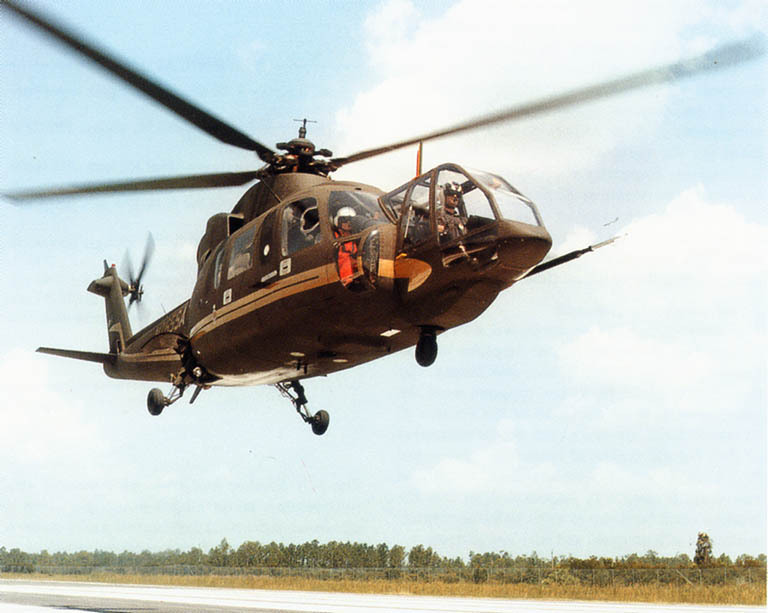



No comments:
Post a Comment